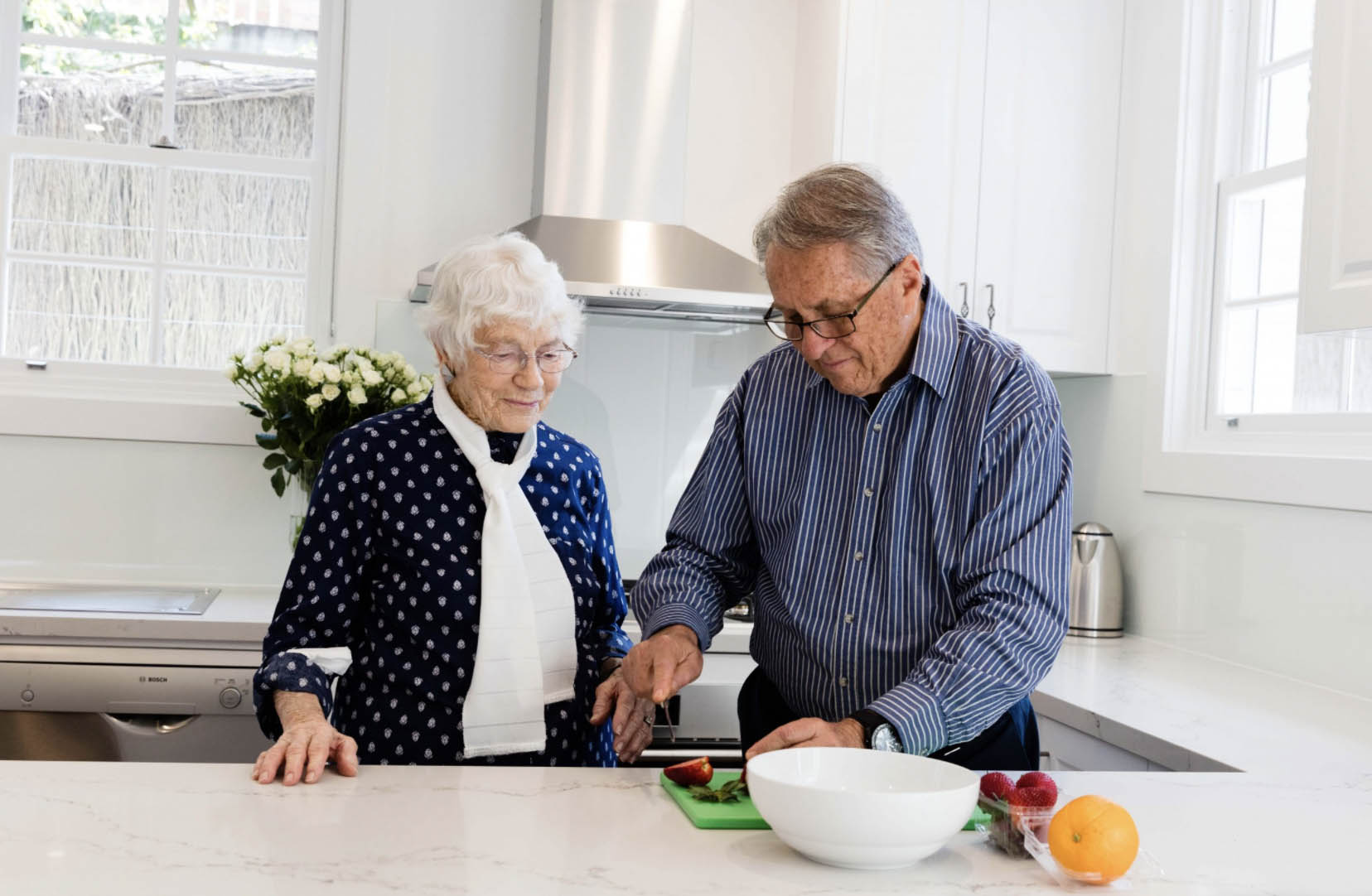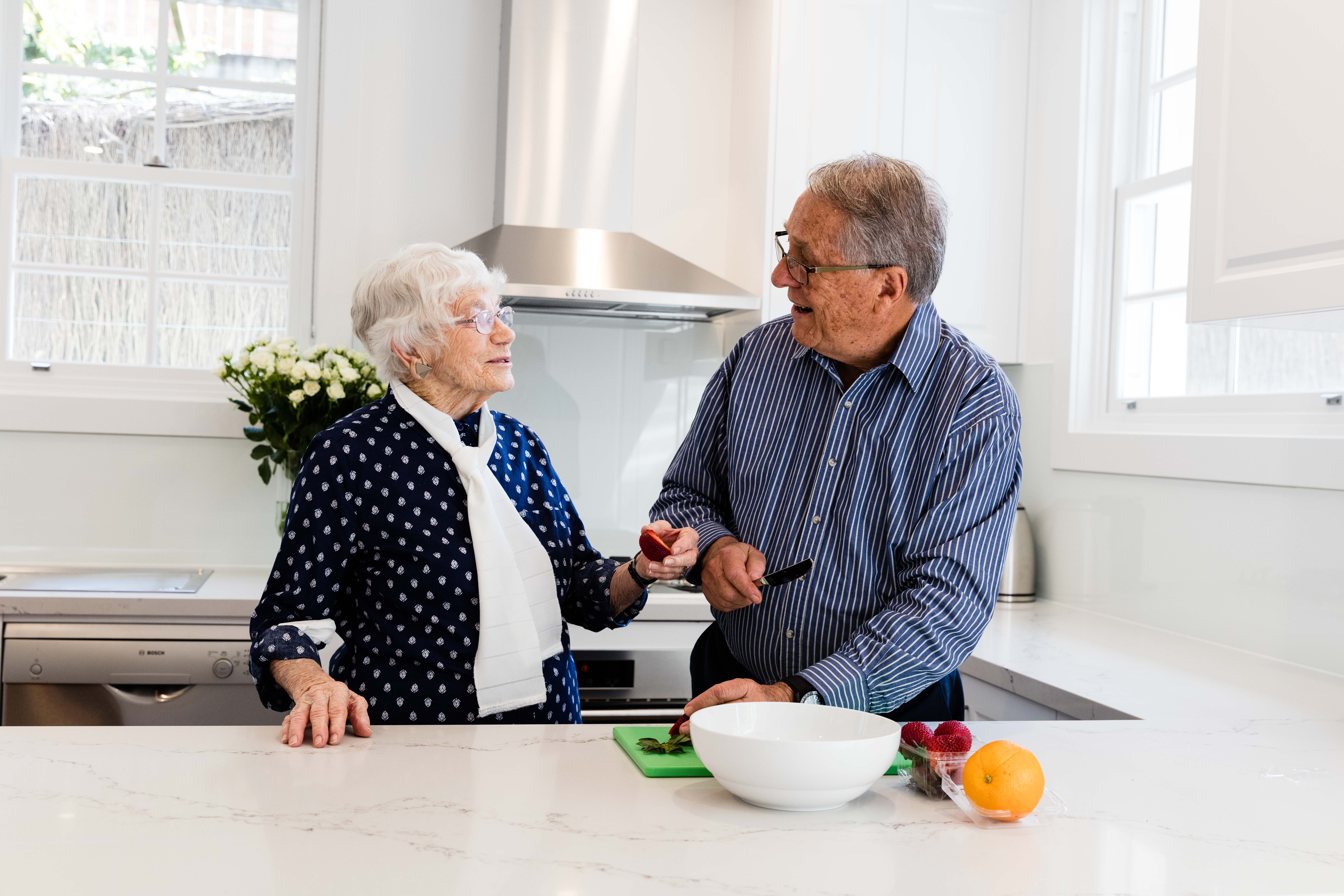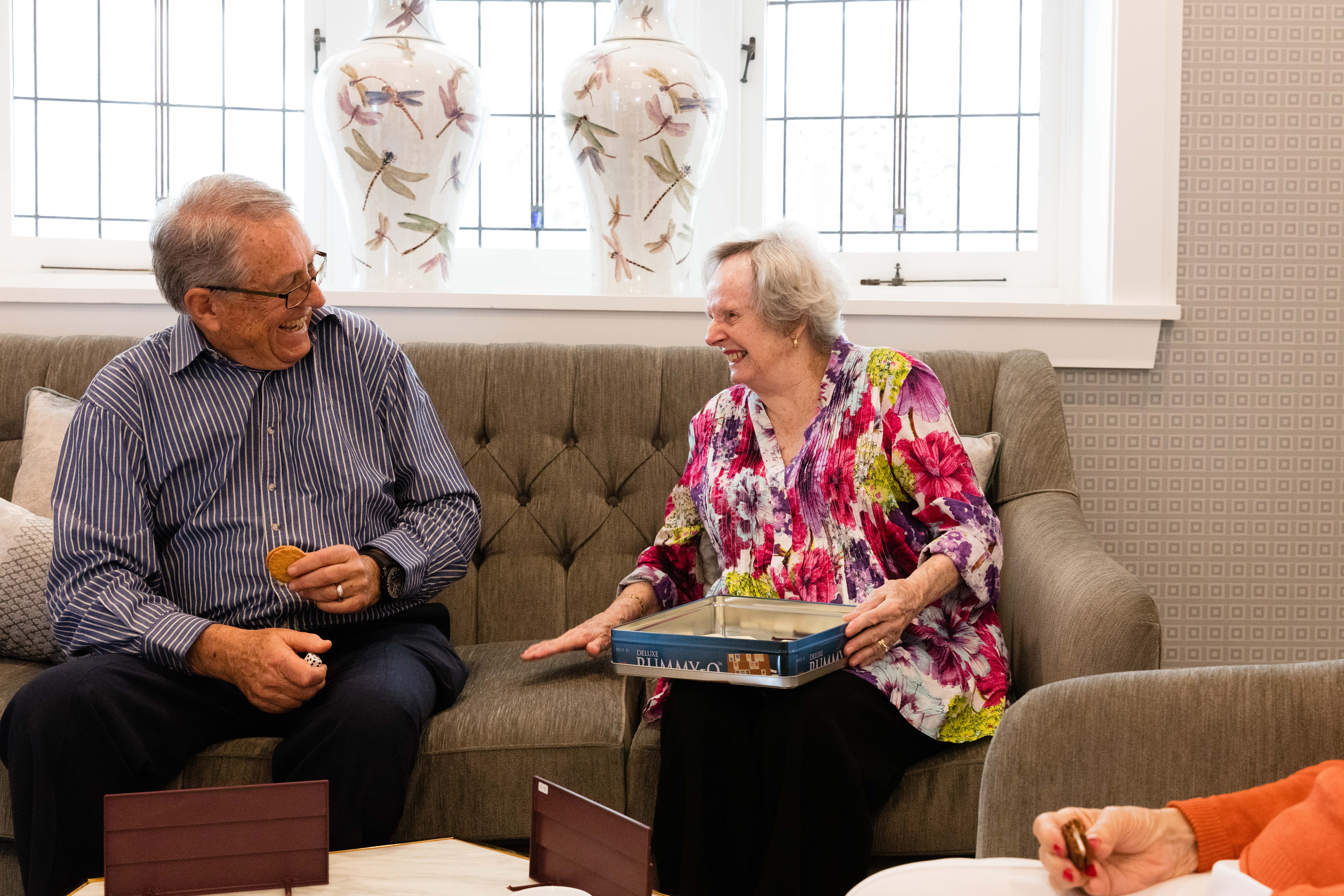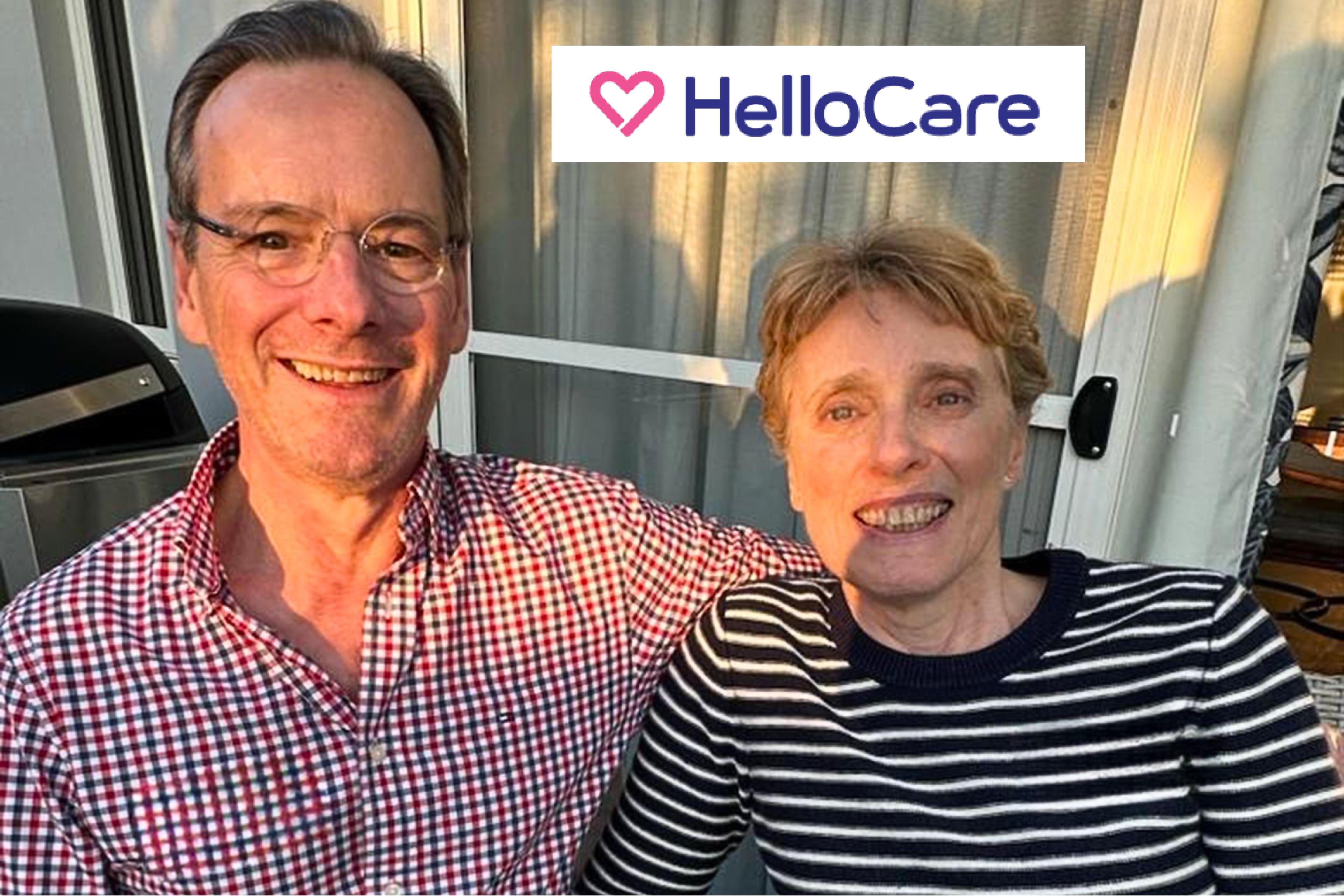Food is an integral part of our lives. For some, certain foods will bring up memories and for others it’s the way they connect with family and friends over a meal.
For someone living with dementia, food can change. It may taste different, and we may notice that they eat extremely sweet or salty foods. They may struggle to use different utensils, or their cooking may change. For someone living with dementia and their care partner, food can be a challenge, so here are 3 ways we can adapt the way we think about food to support those living with dementia.
1. Change it up
People living with dementia may struggle to use a knife or fork. This could be a good time to introduce finger food such as sandwiches, to reduce the possibility of embarrassment and rather, comfortably use their hands.
2. It’s not all about eating
Food isn’t just about the act of sitting and eating, it can be much more. Involving your loved one living with dementia in the preparation of the cooking can be an opportunity to provide purpose and may bring up old memories of favourite meals and time spent cooking or baking. Meal times can also provide a moment to engage and connect with your loved one living with dementia, while sitting around the table and sharing a meal.
3. Eating with your eyes first
Food isn’t all about the taste. It’s about what is looks like and how it smells. When cooking a meal for someone living with dementia, we should think about what the meal looks like. Food with lots of contrasting colors may be more inviting. This may also help with depth perception and eyesight changes. Preparing food with familiar smells, such as your loved ones favourite meal, may also help prompt appetite.
Let’s start thinking about food a little differently.
Is it time to consider permanent care?
There is never a right or wrong answer to this question. Our “Question and Answers” are for people living with dementia and for the loved ones supporting them as they consider permanent care, residential aged care, home and community care or a nursing home. Please connect and share your details and take our Q&A to help you decide what to do next.
If we can assist with answering any further questions, please don’t hesitate to contact our Engagement Manager for support on (1300) Show Number
Dance to your own rhythm: Every person living with dementia will do it differently. It’s like a dance.
We understand when a loved one receives a diagnosis, it doesn’t just affect them. There is a huge impact on their support network. We have created a new resource which includes helpful advice for care partners.






0 Comments